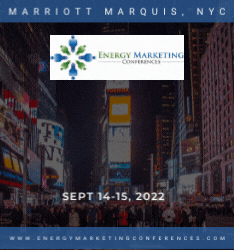|
|
|
|
|
Texas REPs Seek Elimination Of Oncor Inadvertent Gain Fee Charged To REPs
The following story is brought free of charge to readers by EC Infosystems, the exclusive EDI provider of EnergyChoiceMatters.com
In joint testimony in Oncor's rate case, the Texas Energy Association for Marketers (TEAM) and
the Alliance for Retail Markets (ARM) sought the elimination of Charge No. DD24 Inadvertent Gain (IAG) from Oncor’s Tariff for
Retail Delivery Service, and an order allowing Oncor to recover the actual costs
as an operations and maintenance expense.
Oncor is proposing to increase Charge No. DD24 from the current amount of $35.65
to $36.15.
TEAM/ARM said, "The IAG process is a system service, the cost of
which should be recovered in base rates, rather than though a discretionary service
charge to the gaining REP."
"This charge is poor policy because it: (a) unduly
discriminates against the gaining REP by burdening them with the charge absent cost
causation; and (b) is not a customer-specific charge that is recoverable from the customer. The whole point of the IAG process is to return the customer to the losing
REP, which leaves the gaining REP with no one to collect the IAG charge from," TEAM/ARM said
"Charging the gaining REP for an IAG transaction is discriminatory because once the
transaction is unwound, the gaining REP is no longer serving the customer that was
affected by the IAG. In other words, the REP who must pay the charge cannot pass it
through to the customer who experienced the unauthorized change in REP that
necessitated the use of the IAG process or to any third party person or entity who may
have provided the incorrect information," TEAM/ARM said
"Further, none of the other ERCOT TDUs (i.e., AEP Texas Inc., CenterPoint
Energy Houston Electric, LLC, and Texas-New Mexico Power Company) assess a
discretionary service charge for processing IAGs," TEAM/ARM said
"A service offered by a TDSP must be classified as either a discretionary service or a
system service. A system service is defined to include TDU standard metering and
billing services. TDU billing system services include 'administrative activities
necessary to maintain REP billing accounts and records' and 'error investigation and
resolution.' According to Oncor’s discovery responses, the IAG process provided in
the RMG [ERCOT’s Retail Market Guide] checks both of these boxes. Therefore, the work qualifies as a TDU
standard metering and billing service," TEAM/ARM said
"In addition, 16 TAC § 25.342(f)(1)(B) states that the cost of a discretionary
service should be borne only by the REP that is serving the customer who purchases
the discretionary service. This requirement suggests that a discretionary service is
initiated by a customer request or some other customer action that triggers the need for
the service. Here, the customer did not actually purchase a service; there was an error.
This is not analogous to charges appropriately categorized as discretionary services. For example, a customer’s request for temporary facilities during construction, or a
customer’s clearance request to de-energize electrical facilities for work near the
facilities, are appropriate uses of discretionary service charges. An IAG is not always
initiated by a customer request or the customer of the subject premises’ action or
inaction in a situation—it is a process that is required by Commission rules to remedy
a situation whether a customer requests it or not. The cost to process an IAG is not
customer-specific because the process used to unwind an IAG is not customer-specific.
Accordingly, the processing of an IAG more closely resembles a system service," TEAM/ARM said
"Imposing Charge No. DD24 on the gaining REP
falsely presumes that the gaining REP’s actions are always the root cause of the IAG,
and this presumption is echoed in the description of the charge included in Oncor’s
tariff. This is simply not the case. The unintentional error in the transaction
information that triggers the MarkeTrak IAG process can originate from a source other
than a REP’s selection of an incorrect premise for a switch or move-in transaction for
the reasons discussed earlier in this testimony," TEAM/ARM said
Citing data responses from Oncor, TEAM/ARM said, "Oncor cannot
demonstrate how often an IAG is or is not caused by incorrect information provided by
an entity other than the gaining REP. Therefore, Oncor’s IAG charge is contrary to
cost causation principles."
TEAM/ARM recommended that Oncor recover the actual costs proven to be associated with
processing IAGs as an operations and maintenance (O&M) expense to be included in
the revenue requirement that will be used to set rates in the current rate case
Turning to another issue, TEAM/ARM recommended the denial of Oncor’s request to recover costs incurred to lease and operate
mobile generation facilities under PURA § 39.918, "unless Oncor develops a plan
that demonstrates how it will meet the statutory requirements and any
corresponding Commission rule addressing these facilities."
Docket 53601
ADVERTISEMENT ADVERTISEMENT Copyright 2010-22 Energy Choice Matters. If you wish to share this story, please
email or post the website link; unauthorized copying, retransmission, or republication
prohibited.
August 26, 2022
Email This Story
Copyright 2010-21 EnergyChoiceMatters.com
Reporting by Paul Ring • ring@energychoicematters.com

NEW Jobs on RetailEnergyJobs.com:
• NEW! -- Customer Data Specialist
• NEW! -- Account Manager Project Manager
• NEW! -- Retail Energy Policy Analyst
• NEW! -- Incentive Specialists
• NEW! -- Utility Rates Specialist
• NEW! -- Customer Onboarding Specialist
• NEW! -- Energy Performance Engineer
• NEW! -- Director, Regulatory Affairs, Retail Supplier
• Controller for C&I-only Retail Electricity Supplier
• Senior Retail Transportation Analyst (Gas Transport Services)
|
|
|
|









